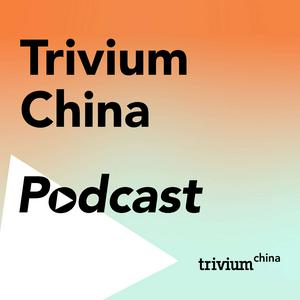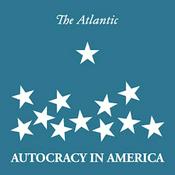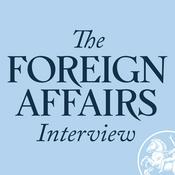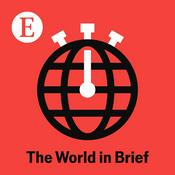55 episodios
- US-China bilateral relations have, surprisingly, been an anchor of calm amidst a sea of geopolitical uncertainty in the opening innings of 2026.
And increasingly, it looks like the seemingly fragile truce between the two countries will prove more resilient that it initially seemed – back when US President Trump and Xi Jinping agreed to a trade war détente in November.
To discuss the state of play – and where things might be going – Trivium China pod host Andrew Polk is joined this week by Joe Mazur (Head of Geopolitical Research) and Even Pay (Head of Ag and Trade Policy Research).
The trio discuss:
The notable shift in tone and approach from the Trump administration toward China
The latest Xi-Trump call, which took place this week
The upcoming visit to China by Donald Trump, which is set for April
Whether America’s more aggressive policy in the Western Hemisphere is hurting or helping China’s interests in the region
Then Andrew and Even go deep on the most important domestic policy development of the week, the release of the 2026 No. 1 Document, which outlines ag policy priorities for the year.
They touch on:
Why ag and rural policies are so important to Party leaders
The shift toward boosting efficiency and productivity in the ag sector – as part of Xi’s wider promotion of New Quality Productive Forces
Recent adjustments to ag and rural policy funding arrangements, and what they might mean for China’s non-urban areas - On this week’s Trivium China Podcast, host Andrew Polk speaks with our lead macro-econ analyst, Joe Peissel, to take a quick temperature check of China’s latest macro data.
The two discuss:
What the full-year 2025 data (released in mid-Jan) tells us about the state of play and the likely economic trajectory for 2026
How the constituent parts of the economy – consumption, investment, and exports – are faring
Whether the export machine can possibly go from strength to strength in 2026
Then Andrew is joined by pod regulars Dinny McMahon (Head of Markets Research) and Cory Combs (Head of Supply Chain and Critical Minerals Research) to examine the enduring headwinds to capital expenditure in China.
They get into:
Whether the cratering in fixed asset investment (FAI) growth in H2 2025 was a one-off or is the new normal (spoiler alert: it’s probably the latter)
Prospects for investment in a couple of key industries – autos and renewable energy
How government policy might address the investment slide
And where infrastructure spending fits in – particularly energy infrastructure, as it relates to the recently released massive spending plan from State Grid
It’s another wonk-fest, so lap it up you China nerds. Ep 53 - Financial regulators start 2026 with a bang + Beijing’s view on the Meta-Manus deal
24/1/2026 | 1 h 24 minChina’s financial regulators have started 2026 with a flurry of activity.
On January 14, the securities regulator raised margin requirements on stock trading in a bid to cool investors’ exuberance.
The following day the central bank expanded a bunch of its relending facilities, and cut the interest rate on all of its structural lending tools.
Then on January 20, the finance ministry rolled out a bunch of measures designed to bolster investment by small, private sector firms.
What’s driving this hyperactive policymaking? That’s what Trivium Co-founder Andrew Polk and Dinny McMahon, Head of Markets Research, discuss on the first Trivium podcast of 2026.
They look at:
How weak Q4 economic data has lit a fire under regulators
Why authorities have settled on this particular combination of policies
And what signals Beijing is trying to send markets
But wait, there’s more! On the second half of the pod, Andrew is joined by a new guest to the podcast, Trivium’s lead AI and semiconductor analyst Linghao Bao. Linghao joins to discuss:
Beijing’s intervention in Meta’s recently announced acquisition of Chinese AI start-up Manus
The specific regulatory tools China is using to slow – or maybe even stop – the deal
The wider implications for China’s AI start-up ecosystem
The gents cover a lot of ground in this one – enjoy!- November economic data was a bit of a letdown, suggesting China’s economy is rapidly losing growth momentum.
Fixed asset investment declined by double digits
Industrial output grew at its slowest rate in 15 months
Retail sales of consumer goods grew at the slowest rate in three years
But things aren’t as bad as they seem.
This week, host Andrew Polk is joined by Trivium’s lead macro-econ analyst Joe Peissel to dig into November’s economic data. The gents cover:
China’s supply-side slowdown, and why it’s partially policy-driven
Why China’s consumption dynamics are more resilient than headline data suggest
The reason Beijing appears willing to tolerate a slight economic correction
Andrew and Joe then round things off by discussing China’s policy and economic outlook going into 2026. Ep 51 - Reordering global supply chains: licenses, leverage, and our strategic look-ahead
19/12/2025 | 54 minAs the new year approaches, governments, corporations, and investors alike are asking: what will critical material supply chains look like in the year to come?
In this podcast, Trivium Co-founder Andrew Polk and Cory Combs, Head of Critical Mineral and Supply Chain Research, discuss where global supply chains and diversification efforts stand today – and how they are likely to shape up in 2026.
Starting from the latest need-to-know specifics and working up to the broader strategic takes from Team Trivium, the lads discuss:
What's going on with China's general licenses and export trends
Trends and issues in US rare earth and broader critical mineral diversification efforts – including our take on the brand new international "Pax Silica" initiative
How the rest of the world is responding to all this, both reactively and proactively
How China is responding to global diversification efforts – including where it is and is not pushing back, and why
Putting it all together, they take a stab at framing the bigger strategic issues ahead.
We've all heard plenty about the tactics of supply chain decoupling – e.g., China's from US chips and Dutch lithography machines, and the US's from China's processed critical minerals
But this all begs key questions, like: What is a desirable end state for both sides? And what does "security" actually look like? (Hint: it's not full decoupling.)
Despite the fierce problems at hand, the gents land on a surprisingly optimistic vision of where US-China relations could land in the next few years – a happy note on which to enter the holidays after a tumultuous year.
Más podcasts de Noticias
Podcasts a la moda de Noticias
Acerca de The Trivium China Podcast
Trivium China is an analysis firm that specializes in monitoring Chinese government policy. From our offices in Beijing, Shanghai, and DC, we break down Beijing's latest moves on the economy, technology, energy, climate, and agriculture.
Sitio web del podcastEscucha The Trivium China Podcast, The Daily y muchos más podcasts de todo el mundo con la aplicación de radio.net

Descarga la app gratuita: radio.net
- Añadir radios y podcasts a favoritos
- Transmisión por Wi-Fi y Bluetooth
- Carplay & Android Auto compatible
- Muchas otras funciones de la app
Descarga la app gratuita: radio.net
- Añadir radios y podcasts a favoritos
- Transmisión por Wi-Fi y Bluetooth
- Carplay & Android Auto compatible
- Muchas otras funciones de la app


The Trivium China Podcast
Escanea el código,
Descarga la app,
Escucha.
Descarga la app,
Escucha.







































